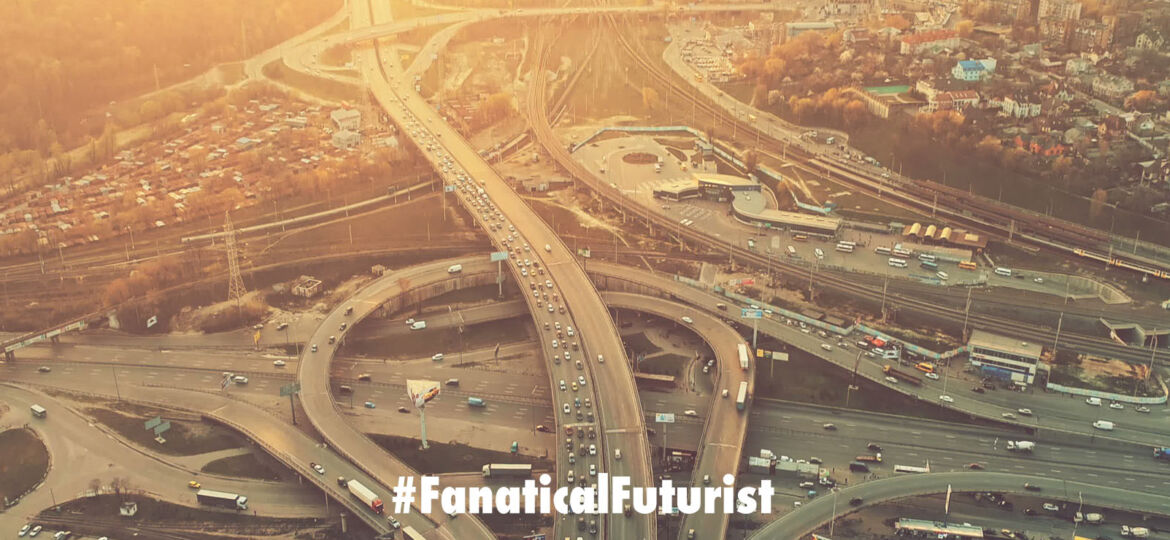
WHY THIS MATTERS IN BRIEF
Quantum computers are insanely powerful new types of computers that excel at optimisation problems – such as traffic management.

Interested in the Exponential Future? Connect, download a free E-Book, watch a keynote, or browse my blog.
Volkswagen has announced plans to “test a quantum computer powered navigation app” in Lisbon next week as part of a larger plan to include such a feature in its vehicles within the next few years.
The German company, who is the world’s biggest auto maker by sales, has been working to commercialise the technology for about three years now and the Lisbon test will involve nine public buses ferrying riders around the city who’ll be equipped with iPads pre-loaded with the “quantum routing” application, which includes technology from Canadian company D-Wave Systems.
The app uses cloud based quantum computing services to calculate the fastest route for each of those nine buses in near real-time – a feat that’s made possibly by the fact that, under the right conditions, quantum computers are hundreds of millions of times more powerful than traditional computers. And the goal is to help prevent traffic jams and cut down travel time, said Martin Hofmann, Volkswagen’s CIO.
The Volkswagen app is different from traditional driving navigation apps, which show vehicles which routes are less congested, giving the same information to all vehicles in a given area. The VW app spells out an individualised route for each participating bus.
“We’ll change the way traffic moves, which is a milestone for us,” said Dr. Hofmann, who oversees information technology for Volkswagen’s 12 brands, including Audi, Porsche and Bentley.
Volkswagen expects to roll out the quantum-routing feature in mid 2020 to public transportation partners in a high-density city, perhaps in Lisbon, Dr. Hofmann said.
Quantum computers are still years away from large-scale commercial applications due to hardware challenges but that said they should be fully available by 2025, and recently researchers at Google passed a major computing milestone when their quantum computer achieved quantum supremacy when their machine generated over a million random strings of numbers in roughly three minutes – a task that they said would have taken the world’s fastest conventional supercomputer, Summit at the Oak Ridge National Laboratory, over 10,000 years to achieve.
Whether such power is truly needed for routing traffic is up for debate, said Dan Garrison, master technology architect at Accenture but Volkswagen’s pilot shows that companies are getting better at understanding what can be done with a quantum computer, he said.
Meanwhile Vern Brownell, CEO of D-Wave Systems, said a quantum-routing application has the potential to solve business problems, including far more complex traffic-optimiSation problems that are beyond the scope of today’s supercomputers.
An earlier collaboration between Volkswagen and D-Wave involved a simulation three years ago that created specific routes for 10,000 taxis traveling between downtown Beijing and the nearest airport, about 20 miles away, in the fastest time possible without creating a traffic jam.
The Lisbon test, although happening on real streets, will be on a far smaller scale. The buses in the Lisbon pilot will cover just 26 stops, transporting thousands of riders in four directions around the city. One bus line, for example, will cover several stations between the conference center near the waterfront and Marquês de Pombal.
A predictive-analytics tool running on a classical computer will identify 45 minutes ahead of time which of the 26 stops is expected to have especially high passenger numbers. To solve that calculation, the German auto maker uses anonymized data from cellphone users that includes GPS positions, date, time and movement.
The quantum computer will then calculate in milliseconds the fastest route for each individual bus taking into account millions of real-time data points about traffic congestion and ridership demand, and each bus will be assigned an individual route every two minutes so they don’t slow down traffic – the same calculation would take dozens of minutes on a classical computer, Dr. Hofmann said.
“What’s exciting about this work is that it’s being applied in the real world,” said Scott Pakin, a computer scientist at Los Alamos National Laboratory.
Volkswagen isn’t alone in their work though with other auto makers including BMW and Ford testing their own apps, and by 2023, 20 percent of organisations, including businesses and governments, are expected to budget for quantum-computing projects, up from less than 1% in 2018, according to technology research and advisory firm Gartner.
Source: VW

















[…] are hopes they could accelerate everything from optimisation problems, such as supply chain and traffic optimisation, as well as drug discovery. But, how much easier and faster they’ll be in the end remains unclear […]